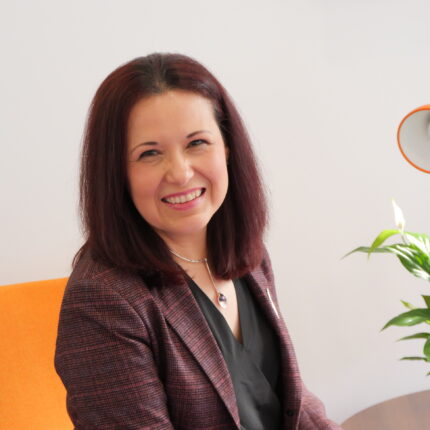For the last decade, there has been a growing revolution in engineering.
Faced with global threats to the sustainability and security of the planet, a new and increasingly diverse set of women are challenging the accepted ways of working.
Growing up in Mexico, where only one member of my extended family went to university, there were few role models for me. My father worked for a cement company, and when I went to work with him, there were only male engineers. Even at university, I was one of a few women in my class. I would see engineering job adverts that only wanted applications from men.
Inequalities in engineering
These moments emphatically shaped my thoughts of women in engineering today, and my belief that if 50 per cent of the population are women, 50 per cent of the engineers should be women. I also believe that the more women there are in engineering, the more inequality will be banished from our systems.
And applications are promising. The 2021 UCAS end of cycle data shows us that around 34,900 women applied to study engineering in the UK last year, up 5 per cent since 2019 – trending sub-disciplines included civil and mechanical engineering.
The focus of International Women’s Day in 2022 is to create a sustainable and equitable environment for women. But there are still many inequality challenges faced by women in engineering both in education, or the workplace.
There are structural barriers, existing within the education systems at A Level and degree stage, and again during practice. Funnels exist that potentially limit the number of women who can enter engineering. There has been work in business and government to remove these inequalities, but more must be done.
And there are self-imposed challenges and limitations, particularly around our own abilities. Too often, when we look at the next promotion that comes up, we think we’re not quite ready or maybe we’re not the right person for the job.
A new model
As President and CEO of the New Model Institute for Technology & Engineering (NMITE), we opened our doors to our inaugural cohort of engineers last September. I have seen more women enter engineering at higher education level in the past 10 years – there’s clearly more to do, and I hope that the NMITE model will be attractive to women. We work with industry partners such as Heineken, Avara Foods and Microsoft to provide our engineers with real world problems to solve from day one. Our learners use this opportunity to gain essential practical experience working directly on ideas, solutions, presentations, and communications – we aim to produce work ready engineers who are excited, passionate, and ready to create solutions to the most urgent global challenges, from building sustainable environments to clean water and cyber security.
Getting our new education model and vision off the ground couldn’t have been possible without the generosity of donors, many of whom are female – our first year of learning has been fully funded by philanthropy. Philanthropic support and the powerful role it could play in disrupting the world of engineering was something we discussed with Cairney & Company, a global fundraising consultancy. It was from this we captured and ignited the imagination of donors showing them the opportunity for a more equitable future of a diverse population of engineers.
Ideas of value
The challenge for women and women engineers is to properly realise our value, and that value doesn’t come from competing against men or trying to be like them. There are two types of successful female leaders in male dominated industries – one is the type who has had to fit in with their male counterparts to be able to progress, often sacrificing their own personal lives and personalities. But then there is the other type which is emerging more and more – the self-aware, empathetic, consultative inclusive leader. What both have in common is that ability to spot opportunities, the willingness to take risks, and the wisdom to learn from experiences and mistakes.
That’s my 2022 challenge to women and that’s my challenge to society. Empower those women, empower them to be able to be themselves and to take risks that make a difference in the world. They don’t need to emulate a man to be successful and if women take risks, learn from them, don’t be afraid. We all must have each other’s back.












